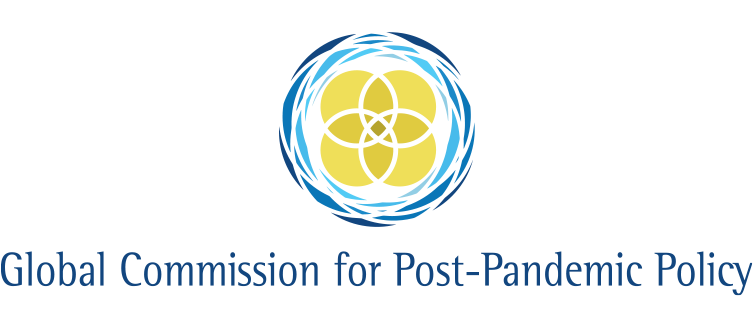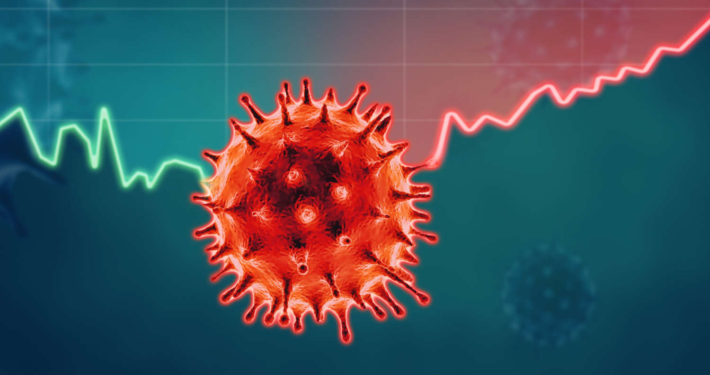Research Monitor
April 13th 2021
Health
Vaccine hesitancy in Denmark
A new paper published in the Danish Medical Journal investigates whether recent news on the association of the Oxford-AstraZeneca with rare blood-clotting events has changed peoples’ willingness to be vaccinated in Demark.
In early and mid-March, a number of European countries paused their use of the Oxford-AstraZeneca vaccine following reports of thromboembolic (blood-clotting) events—some with fatal outcomes—among people who had received the vaccine. On March 18th, after a detailed investigation, the European Medicines Agency (EMA) concluded that—in taking the Oxford AstraZeneca vaccine—the “benefits still outweigh the risks despite a possible link to rare blood clots with low blood platelets.”
Nevertheless, there is some concern that this episode might have generally eroded trust in vaccines across Europe. To test whether that is the case in Denmark, Kim Mannemar Sønderskov and Søren Dinesen Østergaard from Aarhus University, and Peter Thisted Dinesen from the University of Copenhagen used data from the two most recent waves of a five-wave panel survey conducted by Epinion, a Danish survey firm, which asks respondents about their willingness to be vaccinated. Consequently the researchers were able to compare responses from 1,654 respondents just before the Oxford-AstraZeneca news broke and 1,657 respondents from immediately after.
Their results were surprisingly positive. The surveys suggest that vaccine willingness was very high in Denmark, both before (89.3%) and after (89.2%) reports of blood-clotting related to the Oxford-AstraZeneca vaccine. The perceived safety of the Oxford-AstraZeneca vaccine is, however, much lower than that for the Pfizer-BioNtech vaccine, referenced for comparison. The results suggest that while trust in the Oxford-AstraZeneca vaccine may be somewhat lower, overall trust in vaccination has not been affected—an encouraging sign.
Antipsychotic drugs and protection against COVID-19
A new paper published in the journal Schizophrenia Research investigates antipsychotic drugs as a potential COVID-19 treatment.
In the COVID-19 pandemic, people with severe mental disorders (SMDs) are considered a high-risk group when it comes to COVID-19 infection and worse COVID-19 clinical outcomes. This is because of SMD individuals’ lower awareness of risk, a higher prevalence of cognitive impairment and elevated risk of other health conditions like obesity, smoking, hypertension and diabetes as well as cardiovascular and respiratory diseases. Despite this, several recent studies into the prevalence of COVID-19 in SMD individuals have yielded inconsistent results, failing to produce clear evidence of a raised risk of infection or worse clinical outcomes.
This presents a puzzle. To investigate whether antipsychotic medications might explain the difference, a team of researchers from the University Hospital Virgen del Rocío in Sevilla, Spain, performed a retrospective study using the health records of 698 SMD patients in the catchment area of the University Hospital. The patients were chosen specifically for their high medication discipline and had to have taken at least 80% of their prescribed antipsychotic doses between March and November 2020.
The study’s results were surprisingly strong. Of the 698 SMD patients, only 9 fell ill with COVID-19 between February and November 2020, a total of 1.3%. In contrast, for the region as a whole, 23,077 out of 557,576 people were diagnosed with COVID-19 over the same period, a total of 4.1%. This is a significant difference. The result bolsters a string of isolated research findings in the past decade suggesting that antipsychotic drugs offer some protection against the SARS and MERS viruses, close but much deadlier cousins of SARS-CoV-2.
Economics
A new paper published by the Centre for Economic Policy Research (CEPR) investigates whether international firms were more intensely affected by the coronavirus pandemic.
There is a large body of economic literature suggesting that firms relying on international supply chains and exports to foreign markets are more heavily impacted by major economic shocks than firms that produce only in and for a domestic market. International firms exposure to a myriad other markets makes them more sensitive in the short-term to the impact of shocks around the globe. However, international firms are also more resilient to the effects of these shocks in the medium-term. This is because of their ability to swiftly modify their international supply chains in a way that is more difficult for domestic firms.
To test whether these two effects have held during the coronavirus pandemic, economists Floriana Borina, Valentina Rollo, Olga Solleder from the International Trade Centre (ITC) analysed data from the ITC COVID-19 Business Impact Survey, administered between April 10 and August 24, 2020. The survey included firms from most sectors, countries, and firm-size categories comprising 4,433 enterprises from 133 countries.
The study’s results strongly support the conclusions of the existing economic literature. The economists found that international firms were hit harder by the COVID-19 pandemic along their supply and demand channels compared with domestic firms. International firms were more likely to report difficulties accessing manufacturing inputs as well as face difficulties in selling their output compared to firms with no international exposure.
Despite this, the study confirmed that international firms have nevertheless been more resilient to the COVID-19 crisis than domestic firms. International firms were less likely than their domestic counterparts to lay off workers or file for bankruptcy over the survey period and were also more likely to adopt countermeasures to continue operations, such as telework.
Politics
A new paper published in the National Bureau of Economic Research (NBER) Working Paper Series investigates how social-distancing behaviour changes when people are given more accurate knowledge about the beliefs of others.
It is now widely accepted that social distancing is an effective tool for containing the spread of the coronavirus, but the new social norms surrounding social-distancing have had to develop rapidly as the pandemic spread. Because of this change in norms was so rapid, people often underestimate the true level of support for social distancing in their communities.
To investigate whether this mis-estimation materially impacts peoples’ behaviour, a team of researchers from the University of Michigan performed a randomised control trial in a community in Mozambique. In three rounds between July and November 2020, the researchers administered an over-the-phone survey to 2,117 Mozambican households. In the first interview, people were asked to describe their support for social-distancing measures and then estimate the level of support in the community as a whole.
Of the survey respondents, 98% expressed support for social-distancing—but estimated that only 69% of their peers did the same, a significant underestimation. In the second interview, respondents were randomly separated into two cohorts. The first cohort was told the true and much higher value of support for social-distancing in their community, while the second cohort was kept in the dark. In all three interviews, respondents were asked to describe their own social-distancing behaviour (corroborated by separate interviews with peers).
The results showed that those who had been exposed to the true value of support for social distancing in their community were more likely than average to adhere to social-distancing guidelines when infection rates were high but also more likely to flout them when infection rates were low.
This suggests that people are highly sensitive to the perceived opinions of others when deciding whether to social-distance or not—notably choosing to free-ride on the efforts of others when the general risk of infection is low.
GCPPP Newsletter
We now publish a weekly newsletter to inform friends and supporters of the Global Commission’s progress and to provide updates when new content is published. Please sign up here:








